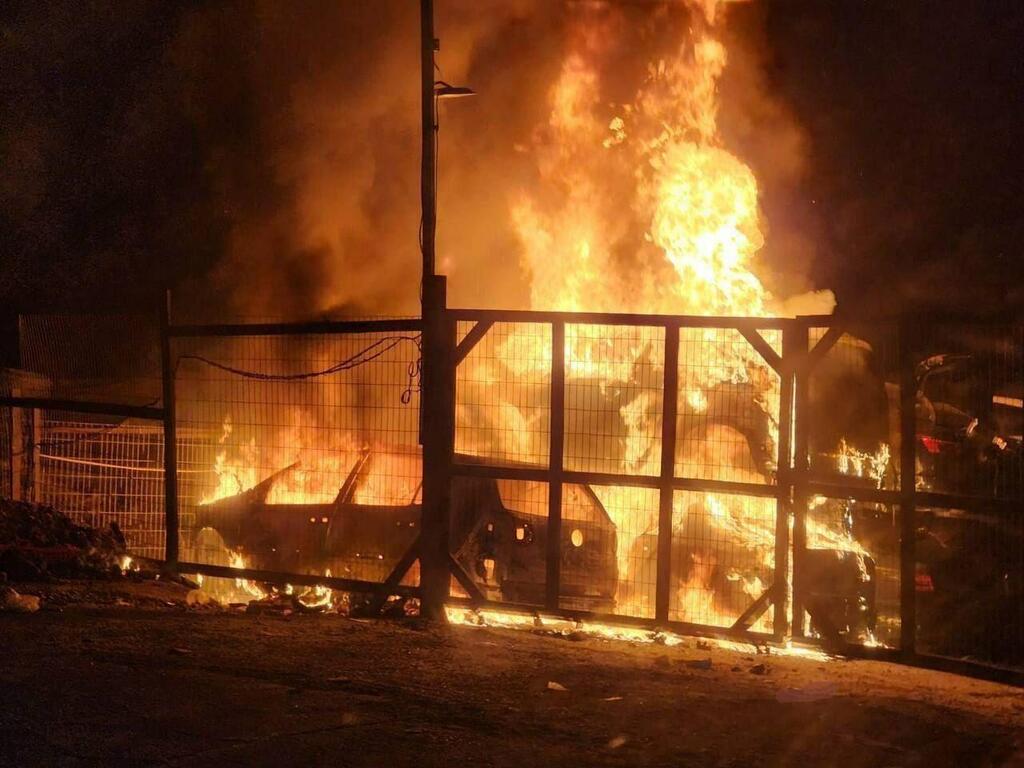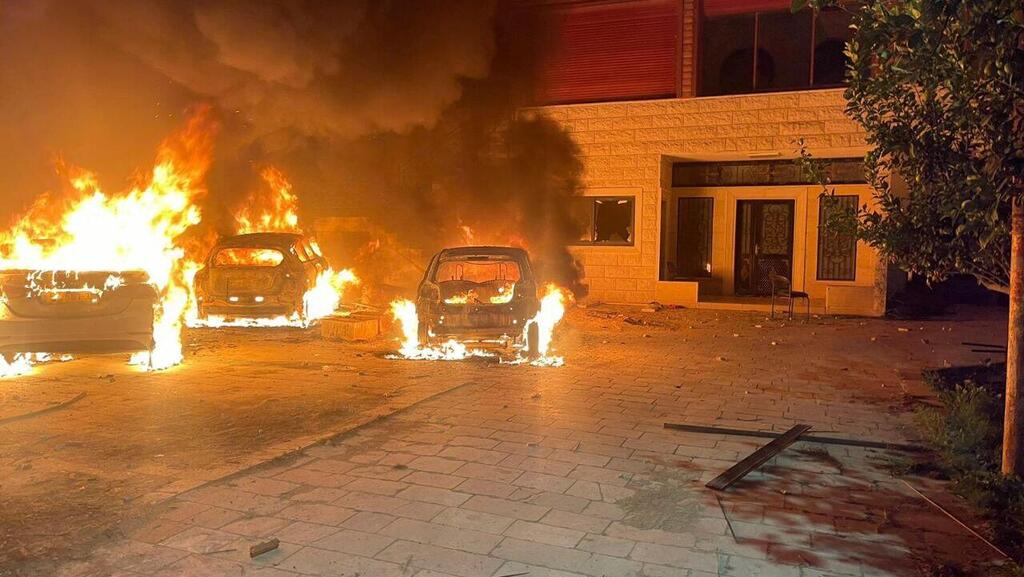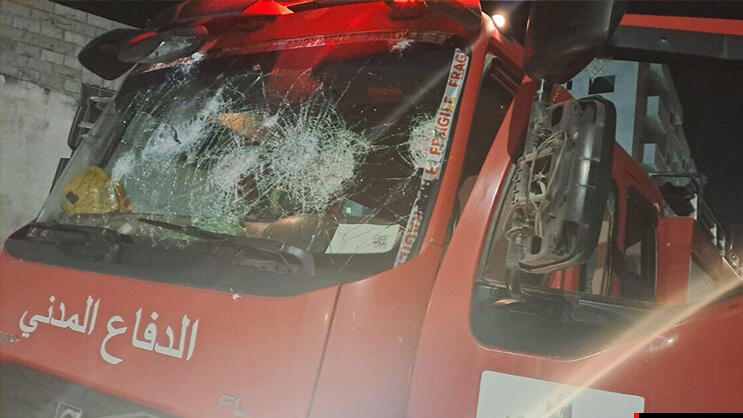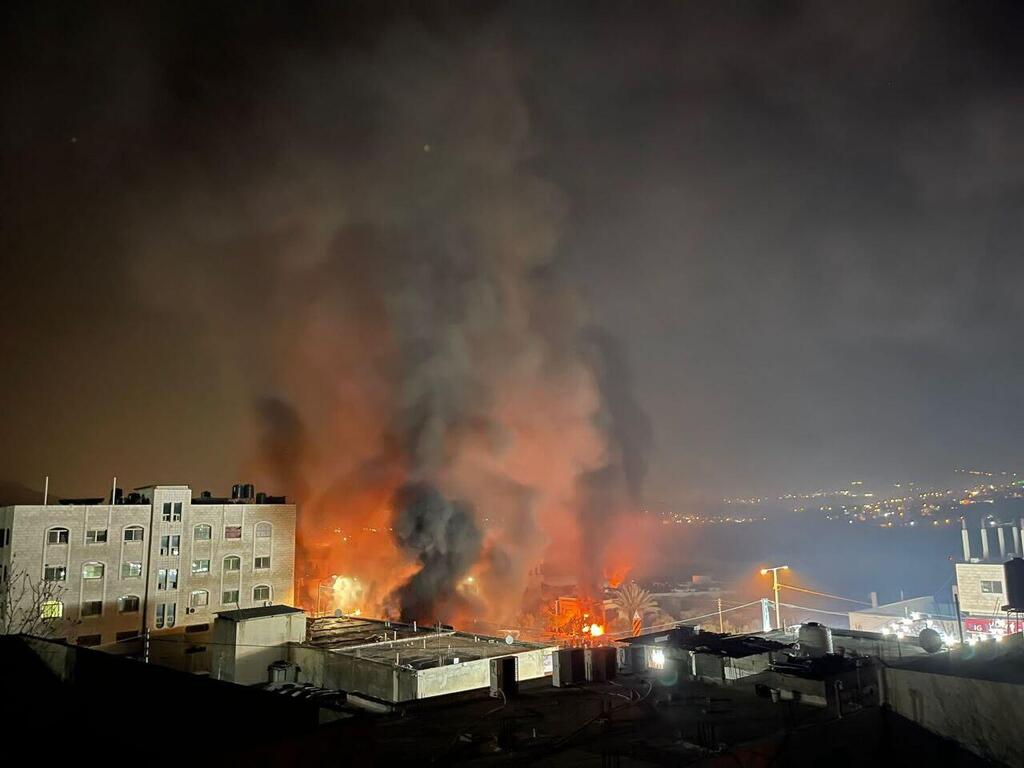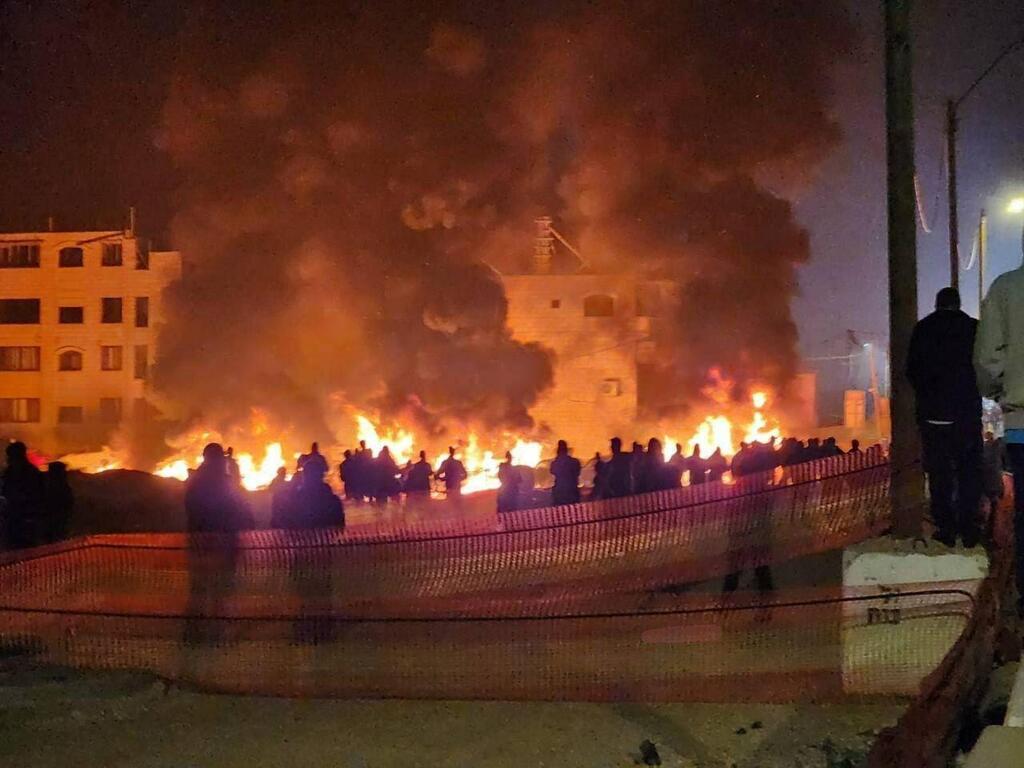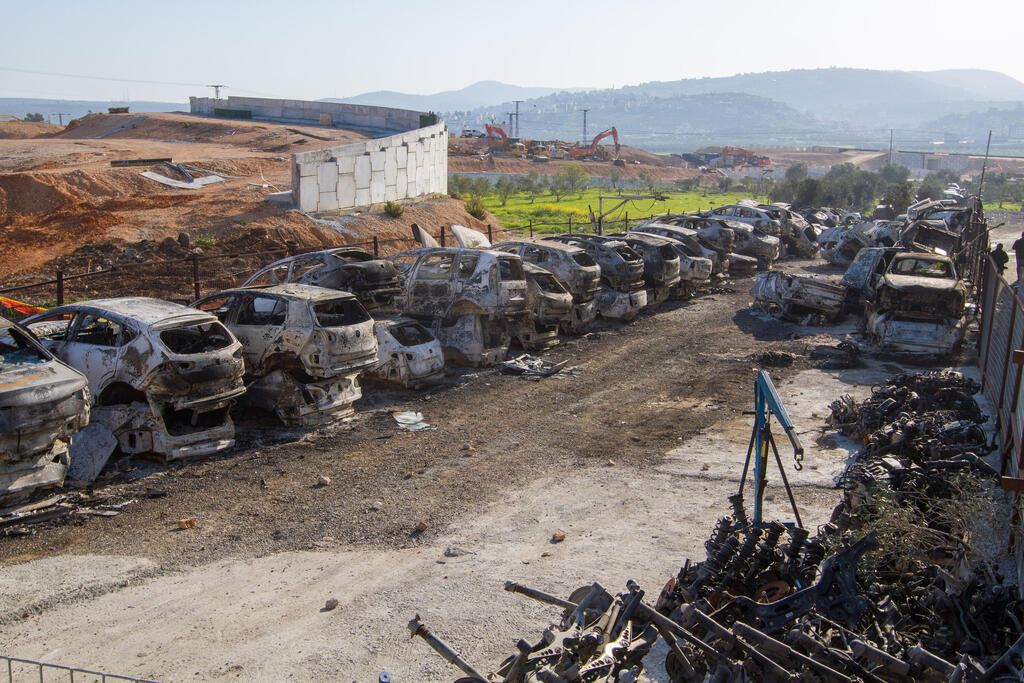Getting your Trinity Audio player ready...
Jewish settlers setting fire in Huwara
Almost four months after the riots caused by Jewish settlers in the Palestinian village of Huwara, said to be retaliation for the terror attack in which Israeli brothers Hillel and Yagel Yaniv were murdered, American news network CNN published an extensive investigation on Thursday in which it raises serious accusations against the IDF’s management of the incident.
More stories:
The network claims that IDF soldiers failed to protect the West Bank village’s Palestinian residents, didn’t prevent the Jewish settlers from causing destruction and setting fire to dozens of houses and cars, and stood by as emergency vehicles, including fire trucks, were blocked from reaching the scene.
Furthermore, according to the investigation, the troops fired stun grenades and tear gas at the local Palestinians, who retaliated by throwing stones at the rioting Jewish settlers.
To this day, four months after the riots, police have arrested several suspects in the rioting, who were all released with none of them indicted.
The riots in Huwara, took place on February 26, just hours after the Yaniv brothers were killed by a terrorist who opened fire at point-blank range at the vehicle they were traveling in while driving on a road through the Palestinian town.
Shortly after attack, dozens of Jewish settlers arrived in the Palestinian village and wreaked havoc. According to CNN's investigation, hundreds of people were injured and one Palestinian was killed in the riot, although he was fatally injured in a clash with Jewish settlers in a different Palestinian village, Za'atara.
Huwara's 'pogrom'
The severe violence caused widespread shock in Israel and around the world, and the American network opened its investigation with a statement by IDF Central Command chief Maj. Gen. Yehuda Fuchs, who described the incident as a “pogrom.”
CNN also mentioned the statement of IDF Chief of Staff Lt. Gen. Herzi Halevi following the subsequent IDF investigation of the riots, which said that: "This is a severe incident that took place under our responsibility and should not have happened."
Halevi’s further remarks, in which he points out that the IDF erred in allocating its forces, focusing at the time on pursuing the terrorist and, as a result, not enough forces were in the area to prevent the riots, wasn’t mentioned by the network.
However, according to CNN's investigation, even the forces that were present in Huwara behaved inadequately.
The military “doesn’t know how to deal with settler terrorism.”
According to CNN, the investigation was conducted over several months and is based on an analysis of videos from the rioting, testimonies of eyewitnesses and Palestinian journalists, as well as an exclusive testimony from a soldier who was among the forces in Huwara – which the network says was acquired via the Breaking the Silence organization.
The soldier, whose name remains anonymous, testified that there were dozens of soldiers in Huwara, alongside Border Police officers, and, according to him, although they were aware of the danger posed by the Jewish settlers, they didn’t intervene in what was happening.
“We just let them continue to advance,” he said, claiming the military “doesn’t know how to deal with settler terrorism.”
The IDF's 'biggest failure'
The soldier added that he believes the IDF’s "biggest failure" in dealing with the riots was the failure to protect the emergency vehicles, including fire trucks and ambulances, and not assisting them in entering Hawara.
“The fire truck simply drove alone and was attacked. The village continued to burn,” the soldier said. CNN noted that videos its staff reviewed show that these emergency vehicles were blocked by soldiers in the square leading to Huwara’s main street.
A Palestinian Red Crescent spokesperson told the network that the vehicles fell into an "ambush" set by the Jewish settlers, while the soldiers did nothing. “When Israeli forces finally let them in, they told them that it’s at their own risk, and if settlers attacked them, it’s their own responsibility,” the spokesperson told CNN.
"At this point, they [the army] should have started shooting tear gas, and stun grenades and start repelling them."
The soldier himself expressed astonishment that the military didn’t block the settlers' access to the village: “You have a group of dozens of people you see who are hot-headed and they start walking toward Huwara, they are masked and some of them may have knives. What do you think they are coming to do? At this point, they [the army] should have started shooting tear gas and stun grenades and start repelling them.”
CNN emphasized calls for revenge against the terror attack were distributed via WhatsApp groups and social media hours before the riots took place. “The post was disseminated on several settler WhatsApp groups, as well as on social media, suggesting that the threat of violence would have been well known to authorities beforehand,” according to the network.
Eyewitnesses provide harsh testimony
The investigation also presented harsh testimonies from Palestinians who were attacked, and the network reported that videos that came into its possession and were verified, show “hundreds of people flocking to Huwara’s main street from a nearby roundabout between 6 p.m. and 6:30 p.m. local time, setting fire to car tires, cars, trash cans and wooden pallets near the entrances of apartment blocks, shops and businesses.”
One of the residents interviewed was 48-year-old Ziad Dumaidi, who shared that the residents themselves were prepared for the possibility of riots. He prepared water and fire extinguishers in case his home was set alight, and moved his car to another parking lot. However, his preparations were insufficient.
According to Dumaidi, when his house was set on fire, he, his wife, and their four children prepared themselves for death as the smoke filled the house. "We thought it was over for us. There was barely any oxygen,” he recalled.
According to his account, it was only two hours after the fire broke out that IDF soldiers assisted in extinguishing the fire, and according to him, they did nothing when Jewish settlers continued to hurl stones at him and his family.
Another resident who spoke with CNN was 75-year-old Nawal Dumeidi, Ziad's distant relative. She shared that, due to some wooden planks burning outside her door, the exit was blocked, and she and her daughters were trapped inside for three days.
Her son, she said, had to return from Dubai to free them. She described how she heard stones being thrown toward the roof of her house and landing on the balcony, and saw the fire drawing closer.
“We were choking on the gas, it was asphyxiating. We could feel our faces burning."
She tried to put it out with a bucket of water but claimed that soldiers shot tear gas and stun grenades at her: “We were choking on the gas, it was asphyxiating. We could feel our faces burning.” As alleged evidence of her claims, she showed CNN pictures of tear gas canisters and stun grenades on her balcony.
In response to some of the allegations in the investigation, the IDF stated that the soldiers "acted to separate the two sides," and in order to disperse the riots they used tear gas, stun grenades and fired shots in the air in warning. It was also stated that the military sent reinforcements to Huwara after the riots began.
Regarding the allegations of its failure to prevent violence against Palestinians, the IDF told CNN that soldiers are required to prevent acts of violence or damage to property, and they are "required to act to stop the violation,” and If necessary they are also required to “detain or arrest suspects until police arrive at the scene.”
Both the IDF and the Shin Bet conducted a thorough investigation into the Huwara riots, which resulted in severe criticism of the military’s operations, particularly the fact that the IDF failed to gain control over the incident, prevent Jewish settlers from entering the town, and stop the riots.





